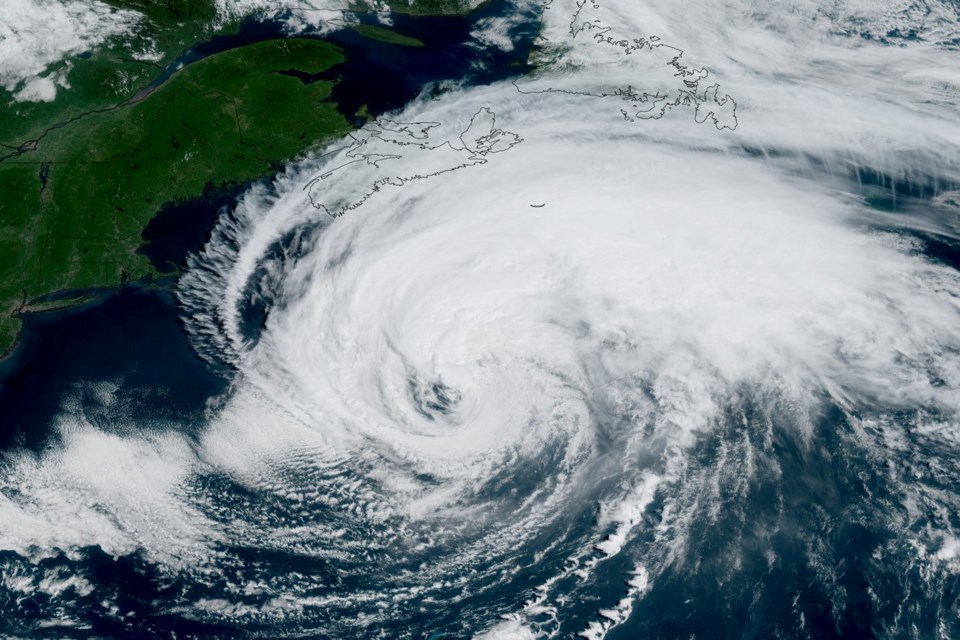A powerful storm tracking up the Atlantic Ocean risks disrupting firefighting efforts in Newfoundland and Labrador, but officials in both provinces say they are prepared.
Hurricane Erin should stay far offshore on Friday and Saturday, but could bring gusty northeasterly winds across central and western Nova Scotia, where an out-of-control wildfire has forced the evacuation of about 100 homes in the Annapolis Valley. Sudden shifts in wind direction, officials say, can put firefighters in danger.
Rain between 50 and 100 millimetres from Hurricane Erin would have been welcome to help douse the flames, said Bob Robichaud, meteorologist from Environment Canada.
"But it's not the case." In the 21 years that he has been a meteorologist, Robichaud said it's the first time he's seen a hurricane and a wildfire at the same time.
In Newfoundland and Labrador, Premier John Hogan said Friday that if the storm brings strong winds to the province, "absolutely it will affect the firefighters. Rain will certainly be welcome. Wind certainly will not. And if it gets very bad, of course, we'll have to pull not only the air assets out, but the firefighters as well."
"As we've said from Day 1, safety is the most important thing."
As of Friday afternoon, Erin was about 500 km south-southwest of Sable Island, N.S., with maximum sustained winds of 148 km/h.
Jim Rudderham, director of fleet and forest protection in Nova Scotia, said firefighting crews "bend" to the weather all the time.
"It's some wind, but it's not hurricane force winds, but it is wind. And it's when it changes, that it's going to be a little swirly for a while. So, they're just accommodating themselves accordingly."
Scott Tingley, with the Department of Natural Resources, said the Long Lake wildfire is proving challenging to tackle because of factors such as drought, intensity of the blaze, and how deep in the ground its burning. The wildfire has scorched more than 32 square kilometres of ground.
"We need to see what the impacts of this wind (from Hurricane Erin) through the weekend is going to have," he said.
In New Brunswick, there are 18 active fires with three of them reported to be out of control with a total of nearly 22 square kilometres of ground burned. Officials in that province did not respond to questions about how the hurricane would affect firefighting efforts.
Back in Newfoundland, Hogan said a wildfire near Kingston in Conception Bay North continued to burn out of control and is estimated at 101 square kilometres. Officials are considering busing people, when the weather permits, to the communities destroyed by wildfires so they can have a look at the damage.
Hogan noted that not everyone whose properties have been destroyed may be able to rebuild in the same place.
"If people want to rebuild, I support that decision, and will support them in doing so," he said. "But if people make a decision that they want to maybe move somewhere else with family members, move to surrounding communities, those are conversations that we need to have."
Hogan downgraded the number of structures lost to the Kingston fire to 196 from 203, saying crews have had a chance to closely assess the structures lost.
"That's probably not to be unexpected, and we'll continue to make sure we get all that accurate information as we can as we continue to contact people who have lost homes or lost structures," he said.
Prince Edward Island has not reported any active wildfires, but has issued "a fire closure order" banning all fires including campfires, until further notice.
This report by The Canadian Press was first published Aug. 22, 2025.
The Canadian Press



